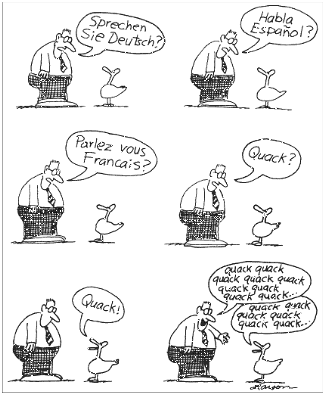I understand I might have lost people wit the following answer. In short: the dream supervisor has many skills, a specific role, yet one goal: elevate the skills of a PhD student to the level where she/he can fly away by herself/himself, despite three types of stereotypes: his/hers, yours, those from your (her/his+you) environment.
Warning: the following answer contains strong allegorical content. One can replace the two bird species by other animals, male/female, as well as other broad categories like majority/minority. This was partly inspired by:
It helped me to step aside the question, as done in some science-fiction or utopian texts.
First, to limit the standard gender biases and stereotypes, try to view the situation from an other perspective: you are a duck, the field is 95% duckish, and you are supervising your first seagull student. Both are quite similar: they are birds, they fly and dive, they are webbed-toed. But one common trait, though less visible at first glance, is more important to scholars: they can travel thousands of miles (out of merit). The allegory is about focusing on the most important traits in academia, not the obvious ones that matter most in society.
Yet, in this allegory, some birds are more familiar than others in everyday life. And the others are more prone to songs or poems.
So I am a duck, supervising a seagull student. The work place is 99% duckish. Ducks shake wings to other ducks, but they like to cheek kiss seagulls. There are other such "habits", that distinguish seagulls and ducks in workplaces.
So I told my seagull student: "I do not really like to shake wings with birds, cause wings get dirty (and you can get bird flu), but this is a habit. So I now ask people if they want to shake wings or else. With those who dislike that, we can agree on a different sign. What do you prefer?".
My intent is to show that seagulls can make their own rules in a duck world, slowly but firmly.
When I have changed some of my unconscious duck manners, I can observe other ducks behavior: do they behaved duckish? do I feel this may affect the seagull's feelings?
Then, observing a specific behavior (daily comments in public about the seagull's feathers), I can tell the seagull (face to face, afterward): "I have seen this behavior, it seems duckish and misplaced to me. If you feel like this too as a bird (or a seagull in first place), may I suggest you to talk to the duck face to face, and tell it what happened, how you feel, and what you would like in the future (tools from emotional intelligence). If you do not want that here, or cannot handle it right now, here is some help you can use: myself, or another trusty person (if possible, a senior seagull you know in HR department. Just tell it. You should also know that even 'talking about how duckish ducks can be' can help".
On my own, I did tell a follow duck how duckish it was with the seagull, from my point of view, not involving the seagull, and told the duck to think about it. I even had to make public comments about its feathers on a regular basis to ring the bell. It worked.
Finally, I confess a little tern bias when I present scholar birds to the seagull (at meeting, conferences). Showing how other senior seagulls perform in the field can be important for identification and future positions. But warning: you can learn that maybe your seagull student self-identifies as an eagle. You should adapt.
That is your duty as a bird advisor: help the bird students find their way. And for yourself: do the same with any other bird students, even ducks.


